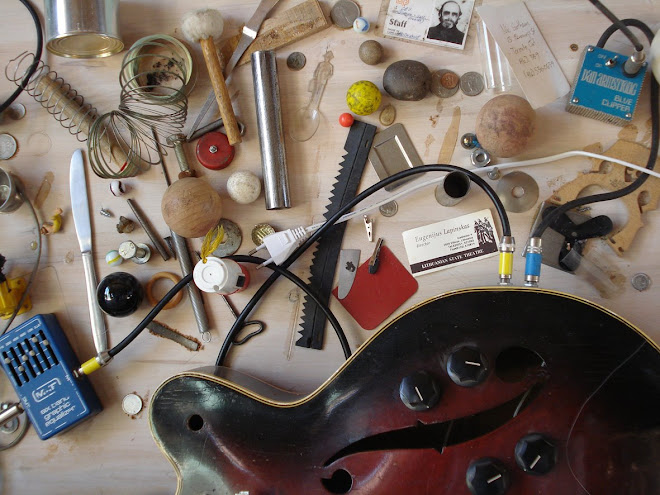Friday 17 February 2012
R. Murray Schafer - Listen
Monday 13 February 2012
Sunday 5 February 2012
How does LISTENING affect our lives?
"Because listening is such an important aspect of our daily lives, and because our auditory system has such a profound impact on how we function, it is fair to say that anyone could benefit from an auditory stimulation program such as The Listening Program. Specifically TLP was designed for children (ages 2 and older) and adults who have auditory perceptual / processing concerns."

Click on image above to watch video
Dr. Alfred A. Tomatis

Dr. Alfred A. Tomatis (January 1, 1920–December 25, 2001) was an internationally known otolaryngologist, and inventor. He received his Doctorate in Medicine from the Paris School of Medicine. His alternative medecine theories of hearing and listening are known as the Tomatis method or Audio-Psycho-Phonology (APP).
Thursday 2 February 2012
The Microsoft Sound composed by Brian Eno.
In 1994 Microsoft corporation designers Mark Malamud and Erik Gavriluk approached Brian Eno to compose music for the Windows 95 project. The result was the six-second start-up music-sound of the Windows 95 operating system, The Microsoft Sound (.wav). In the San Francisco Chronicle he said:
"The idea came up at the time when I was completely bereft of ideas. I'd been working on my own music for a while and was quite lost, actually. And I really appreciated someone coming along and saying, "Here's a specific problem — solve it."
The thing from the agency said, "We want a piece of music that is inspiring, universal, blah- blah, da-da-da, optimistic, futuristic, sentimental, emotional," this whole list of adjectives, and then at the bottom it said "and it must be 31/4 seconds long."
Talking about a proposal for a sound work which could be installed in an airport "when you're changing planes and you're and you've got an hour to spare and you don't want to spend more money on calculators."
Wednesday 1 February 2012
Open Music Archive

Open Music Archive is a collaborative project, initiated by artists Eileen Simpson & Ben White, to source, digitise and distribute out-of-copyright sound recordings. The archive is open for anyone to use and contribute to.
Filling the Deadly Silence
From shopping malls to office spaces to the privacy of home, silence is rare. People in general are uncomfortable with a noiseless environment. Whether in the shopping mall or the office, people are more productive when they are listening to the appropriate music. This manufacturing of an emotional buying and working experience has become a staple of the American programmed music industry. But, people do not like to feel like they are being acted upon. Thus, Musak was born. Made most popular by the company “Muzak”, this style of audio has evolved into a conflict of control over consumer behavior versus consumer resistance to such coercion. In effect, Musak is the epitome of the subconscious war for the consumer’s mind.

